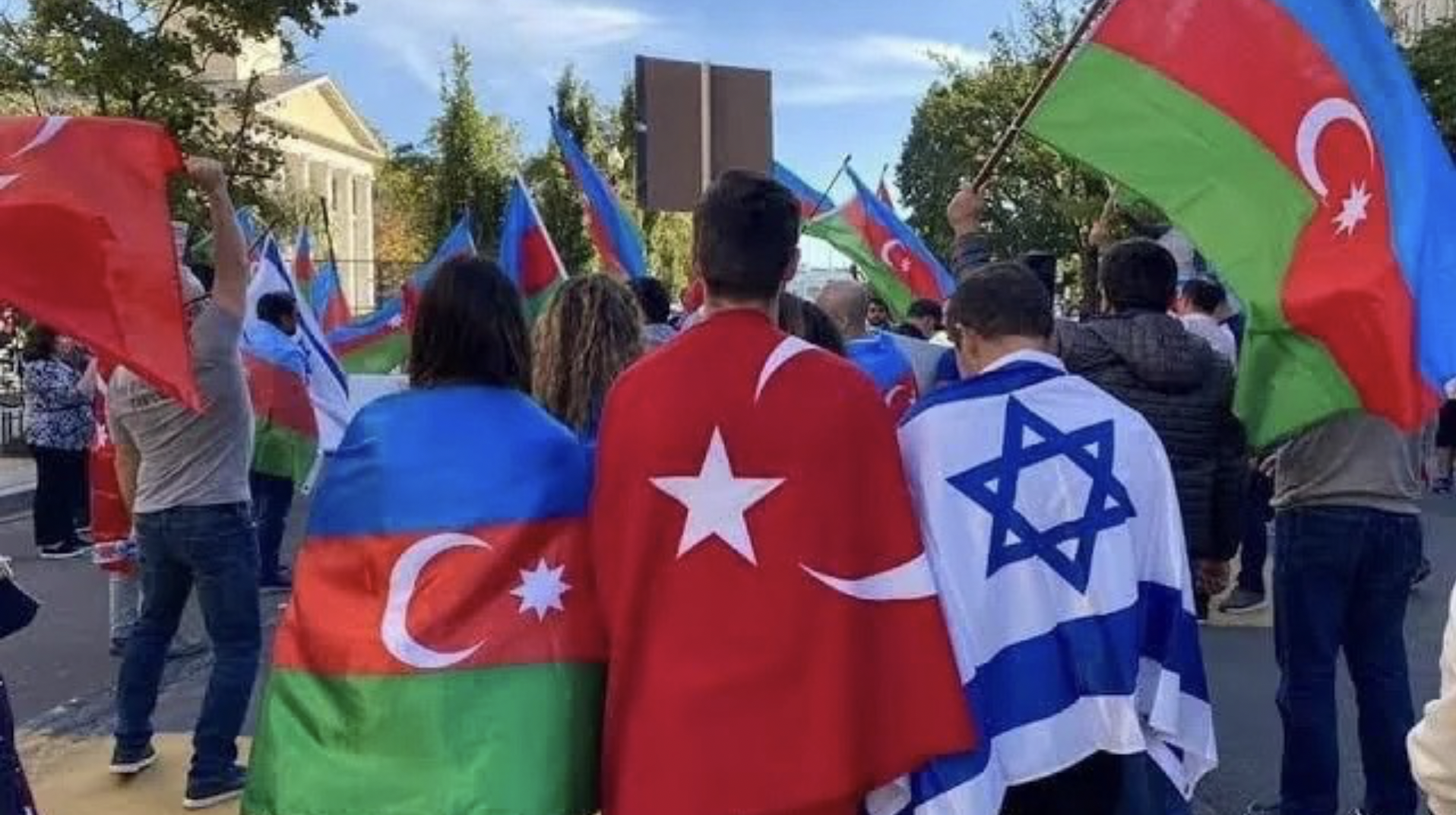
Publication
Azerbaijan and the Turkish-Israeli consensus on the SAR

ARVAK Center comment, 16.04.2025
The Turkish-Israeli negotiations on Syrian issues, held in Baku on April 9, 2025, were expected, and therefore the information disseminated by the Azerbaijani media about the supposed ownership of their initiative by I. Aliyev is exaggerated. However, there is no doubt that the Azerbaijani authorities, being aware about the upcoming meeting, did everything to ensure that it took place not in the UAE, Bahrain or Qatar, but in Baku. It was important for I. Aliyev to show both sides that he is extremely interested in the settlement of Turkish-Israeli contradictions, as well as to have the opportunity to do everything within the framework of the mediation mission to establish mutual understanding and trust between the parties. It is extremely unprofitable for Azerbaijan if the Turkish-Israeli differences slide into a conflict, which could have extremely negative consequences for Baku itself.
Aliyev understands that the situation “on the ground” in Syria, in contrast to the verbal confrontation between R. Erdogan and B. Netanyahu over Gaza, can quickly transform from mutual threats and verbal attacks in the public space into a violent clash between Ankara and Tel Aviv. The question is that the sides in Syria may not be able to carry out a pragmatic maneuver in time, since on the one hand we are talking about an immediate threat to Israel’s borders, and on the other, damage to the authority and long-standing revisionist plans of Turkey to establish its dominance in the Middle East. The conflict may not be limited to a clash of interests exclusively in Syria and may affect the entire agenda of Turkish-Israeli relations, turning previous points of interaction into a front of confrontation. In this scenario, Azerbaijan, which until recently was a platform for successful interaction between Ankara and Tel Aviv, will find itself on a fault line, which will threaten to unbalance its positions in the region. It was the reliable reliance on both Turkey and Israel that provided Baku with the opportunity to balance the pressure from Russia and Iran, regulate relations with the West, build a new type of army, acquire an effective military-industrial complex and, finally, resort to a forceful resolution of the Karabakh conflict without significant negative consequences for itself.
Now, given a hypothetical conflict between Turkey and Israel, Baku could be thrown out of its geopolitical comfort zone and left with no visible prospects for the further development of its successes. For example, the desire to tear Syunik away from Armenia will become an invincible task without Baku’s simultaneous reliance on Ankara and Tel Aviv. Azerbaijan expects to gain the so-called “Zangezur Corridor”, which is largely based on Turkey’s interest in establishing a land connection between the Turkic world, and, at the same time, Israel’s interest in stopping Iran’s access to Europe through the South Caucasus. This means that implementing the idea of “corridor” will require the consensus and the combined efforts of all 3 stakeholders. In the case of a Turkish-Israeli escalation, consensus is impossible, as is a close interaction between Ankara and Tel Aviv on the Azerbaijani track. Therefore, Baku has every reason to fear not only the disruption of its future plans, but also the threat of losing the disposition already achieved after the “Karabakh victory” in the region.
The next meeting of the Turkish and Israeli delegations should take place after the Christian Easter, and it is expected that Baku, as the party most interested in resolving the contradictions between Ankara and Tel Aviv, will again seek to hold it on the Azerbaijani platform.
